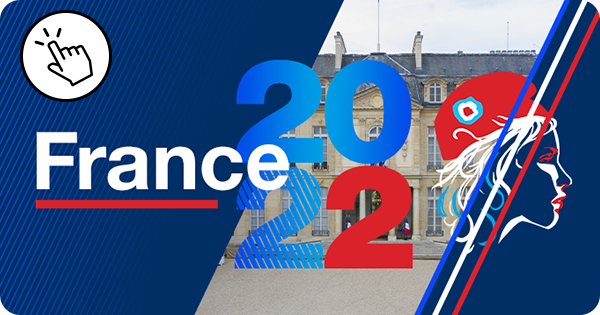As Emmanuel Macron enjoys a substantial poll lead ahead of April’s French presidential vote, his opponents are trying to capitalise on revelations that spending on consultancy firms soared to nearly €1 billion during his presidency. But the controversy looks unlikely to torpedo his re-election campaign.
Just over five years ago the upstart ex-economy minister Macron surfed to the top of the polls and rode that wave all the way into the Élysée Palace after a financial impropriety scandal kiboshed conservative frontrunner François Fillon.
This time Macron is the subject of an alleged scandal, as his electoral opponents focus on a Senate report which revealed earlier this month that public spending on management consultants more than doubled from 2018 to 2021, climbing from €379 million in 2018 to almost €893 million in 2021. The report also suggested that a major recipient of this spending, McKinsey, paid no corporation tax in France over the past decade, an allegation the US firm denies.
This comes after Politico broke the story in early 2021 that France was relying on McKinsey’s advice amid an initially sluggish Covid jab rollout.
While the extensive use of such firms is common practice in many Anglophone countries, in France the government is expected to rely on the highly-regarded civil service to administrate instead of drafting in private contractors.
>> 'McKinsey Affair': Macron under fire from election rivals over costly consultancy fees
To assess the so-called McKinsey affair’s significance for the presidential campaign, FRANCE 24 spoke to Andrew Smith, a professor of French politics at the University of Chichester.
Smith suggested that, for people who already disliked Macron, the affair entrenches the idea that he is a haughty “president of the rich” – but it is unlikely to shift the dial for an incumbent riding high in the polls.
What seems to have motivated the French state to pay so much money for consulting services, especially when that work is done by the civil service?
Emmanuel Macron has spoken already about how a lot of these were one-off projects, and that was the main justification. He said it was cheaper to hire consultants to do such projects than to commission new civil servant roles, to pay their salaries and pensions. He also spoke about how – although he hasn’t cut the civil service — he inherited a reduced civil service, so he felt there were gaps in capacity. So Macron justified it through the response to Covid. McKinsey consultants have been involved in testing programmes, vaccination, the health pass; all big-ticket items that needed a state response.
Macron was very keen to point out that the consultants were involved in technical matters – delivery and so on – not policy. And he’s trying to justify their use as an economical measure, a way to save money rather than expanding the civil service and therefore state spending.
How does the McKinsey affair affect Macron’s image?
The difficulty with it is that it reinforces the image of the “president of the rich”; it reinforces the image of Macron as someone of the boss class, someone flashy. It gives a powerful rhetorical tool to his opponents, who are able to point to the crisis in purchasing power, the struggles around people paying for food and fuel – and point to already rich people getting richer thanks to the state.
It also creates difficulty for Macron because of the corporation tax issue. That has the whiff of scandal about it. Already if you look at what his opponents have said, you’ve got [populist Rassemblement National leader] Marine Le Pen talking about a “national scandal”, you’ve got [far-left La France Insoumise leader] Jean-Luc Mélenchon and [far-right candidate] Éric Zemmour talking about how they wouldn’t employ consultants.
So the McKinsey affair supplies a weapon that they can wield against him.
Macron’s great appeal has been on competence. The greatest weakness many of his opponents have is that – in all honesty – I think most French people look at them and don’t think they could run the country. Anything that weakens that sense of propriety and competence around Macron is something his opponents will seize on.
But is the affair enough to change the dynamic, less than ten days before the first round on April 10?
I think it will add to the dossier for people who already dislike Macron. I don’t think it’s likely to put people off voting for Macron if they are inclined to do so.
I don’t think this marks a dramatic shift. Governments use consultants. François Hollande used consultants. Nicolas Sarkozy used consultants. This is part of how governments work.
Macron has a technocratic appeal. He talks about getting the job done as efficiently as possible; getting the best people in to do the job. That’s one way of looking at this whole thing and I think that’s how many people will look at it.
I think [the McKinsey affair] is a mini-scandal, a weak weapon to use against Macron. But this close to the election I think it’s all [his electoral adversaries] are going to be able to throw at him.
Many of Macron’s opponents have a much more populist appeal. Le Pen and Mélenchon will talk about corrupt elites and the idea that this is representative of that type of politics.
So [the McKinsey affair] is something that his opponents – for want of bigger scandals – will want to use to contrast themselves with Macron’s technocratic stance. This affair will reinforce and galvanise the opposition that Macron already faces, and as we can see that remains a sizeable opposition from people with a much more populist framing.








